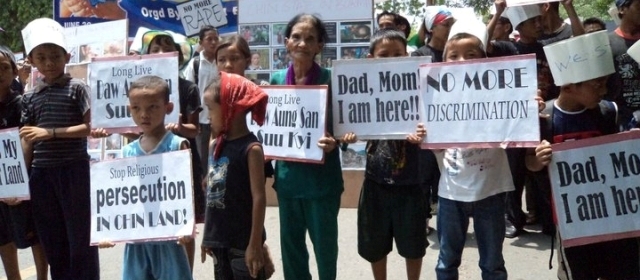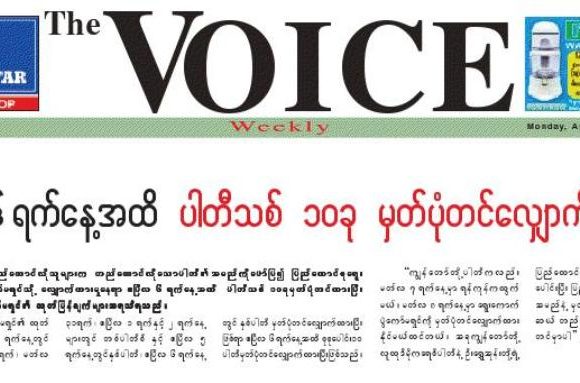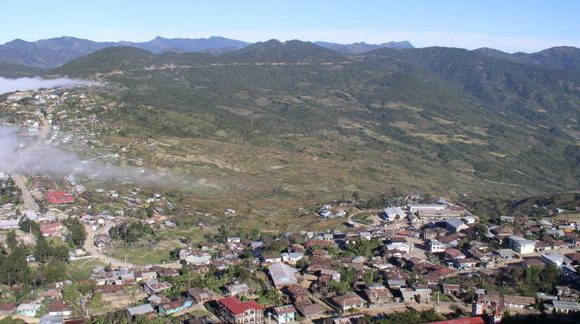Hopeful Chins Look to Don Bosco Ashayalam to be a Saving Grace

27 March 2012 – Delhi, India: The Burmese Chin refugees started boycotting the services of the UNHCR implementing partner YMCA last July 7, 2011 because many of the Indian employees at the YMCA providing the services were very discriminating, rude, told outlandish lies, threatened parents, and did not care or show compassion to the refugees they were supposed to be helping.
The boycott was successful in that the UNHCR has met with Chin Refugee Committee to identify the problems, and set forth what should happen to offer better services. Thus far, the Chin refugees in Delhi have been told by UNHCR that YMCA will no longer be offering services to any of the refugees in Delhi starting March 31, 2012.
Don Bosco Ashayalam (DBA) will be one of the implementing partners of UNHCR that will continue offering services for recognized Burmese refugees including: youth club which encourages recreation activities, income generation activity, employment placement, computer and English education courses for ages 13 and older, open school for classes 10 and 12 (age 16 and above), learn and train program for unaccompanied minors, training sponsorship program which includes computer training, Daffi scholarship program, Bosco Psycho- Social project, and distribution of top-up scheme money for refugees.
As of April 1, 2012 DBA will also offer the services previously provided by YMCA which include: distributing subsistence allowance, providing interpreters at hospitals, and children education (bridge school).
The major problems started when UNHCR had a meeting with refugee parents and told the parents that the only children to be accepted at the Crech (Bridge) School were the children that were enrolled in the government schools. The children don’t want to attend the government schools for many reasons, and the five Crech Centres offer inadequate services. The Crech schools are preparation schools funded by UNHCR to be implemented by YMCA where refugee children were to learn basic skills to start their education and get fed lunch.
In reality, the Crech schools only offered a very light snack to the children despite a large budget for feeding them. The basic skills taught entailed the English and Hindi ABC’s, watching T.V., and learning a few songs with no testing as to the what was being learned. There was no examination for class promotion or to see if any skills were being acquired. According to the community leaders, some of the Centres went so far as to threaten to confiscate the parent’s UNHCR card/ certificate, withhold Subsistence Allowance, and if the students were enrolled at a government school the parents were untruthfully offered financial assistance and the potential to be considered for resettlement.
Other difficulties were evident at the government schools for the refugee children trying to get an education. According to the report submitted by CRC to UNHCR, the discrimination and troubles for the Chin students were rampant, and included: local Indian students physically and verbally assaulting the Chin students, the Chin students were humiliated during meals, the Chin students’ books and supplies were torn apart or stolen by the local students, and the teaching language is Hindi which the Burmese students don’t understand, therefore the teachers ignore the Burmese and leave the local students to instruct them.
A report by a Chin refugee teacher said that religion was a major discrimination in which the students in a government school were forced to worship Hindu gods, which is obviously a sensitive subject considering the persecution the Chin had hopefully left behind in Burma.
The boycott was also about discrimination to Chin adults, lack of services being offered in a timely manner, medical assistance being shockingly ineffective and irrelevant to what the patients condition required, and mistreatment of Chin employees working for the YMCA. Many times the patients would try to see the doctor at the YMCA, and sometimes the doctor without examination would shoo them away to the government hospital or another implementing partner.
The subsistence allowance was unfairly revoked or denied from Seniors and bedridden patients who qualified for that financial assistance. There were major discrimination against the Chin interpreters and community service providers employed at the YMCA in terms of amount of wages, timely payment of wages, recreation programs provided, manual labor responsibilities, and office space provided.
The Chin community and the other Burmese refugees in Delhi are praying for and looking forward to seeing the changes and improvements made by UNHCR’s implementing partner’s offering of services. The refugees are very relieved and appreciative that UNHCR has heard their concerns and needs and are working with the community leaders and organizations (such as CRC) to make better the necessary services for better living conditions. Anticipation towards the betterment of these required assistance programs is very high. The attention of the public is focused on these changes, and the situation is being closely monitored by the community leaders.
Kimberly McNeelan






